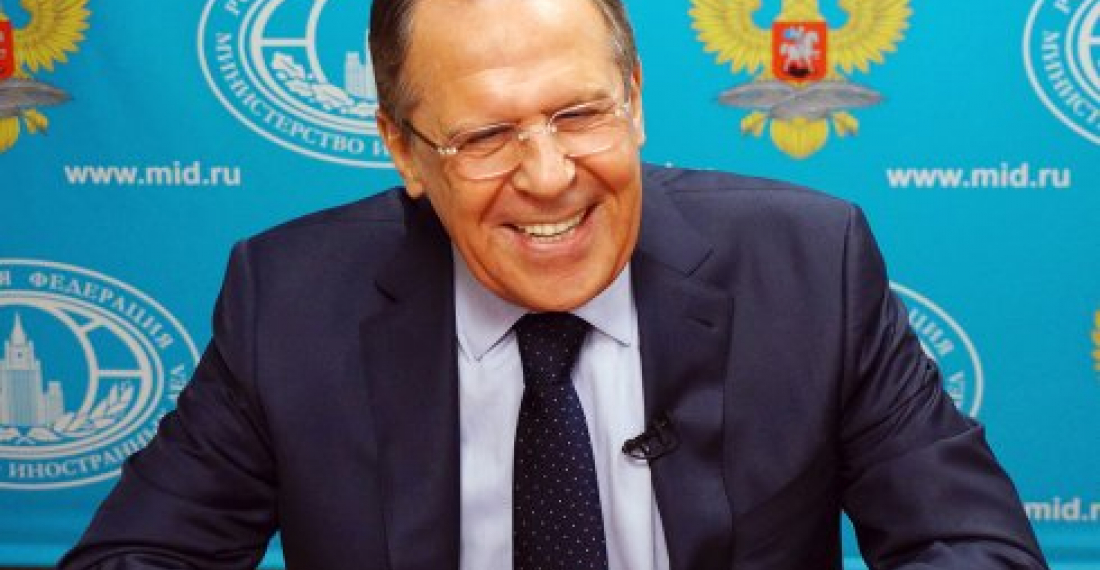A controversy has erupted in Armenia following comments by Russian Foreign Minister, Sergei Lavrov, on the current state of the Nagorno-Karabakh peace process.
Lavrov's comments, at the 16th annual meeting of the Valdai International Discussion Club, are being widely quoted and discussed in the Armenian and Azerbaijani media.
In his comments Lavrov lamented that the parties make serious statements, including that ‘Karabakh is Armenia', comparing it to the time when the Prime Minister of Albania stated that 'Kosovo is Albania'. "This, of course, does not help create an atmosphere for the resumption of the political process," he said in an apparent snub of Armenian prime minister Nikol Pashinyan following a recent speech in Nagorno-Karabakh.
According to him, the Russian side as a co-chair is working closely with the Americans and the French and this is "one of the few situations where we have a completely unified vision, there are basic documents, we want to implement them. Based on the basic principles, we look for a breakthrough, but this breakthrough must be found, of course, through direct dialogue. There are contacts, but the dialogue has not resumed yet." Lavrov however said he was confident that there will not be another breakout of hostilities. "We will do everything to prevent this from happening."
Lavrov, admitted that the Karabakh peace process, that Russia mediates together with France and the United States, is at a standstill, "and so far it has been impossible to get rid of this brake". Lavrov said that the situation on the line of contact has been quite calm, there had been an exchange of bodies and an exchange of detainees is being prepared. The co-chairs of the OSCE Minsk Group work closely and amicably together, and this year met three times with the foreign ministers of Armenia and Azerbaijan, including in April with his participation.
Lavrov's comments came on the same day that Russian president Vladimir Putin was in Armenia, participating in the summit of the Eurasian Economic Union. Lavrov's comments were seized upon by opposition leaders who have described them as a confirmation of the failure of the policy of the Armenian government led by Nikol Pashinyan.The spokesperson of the Republican Party of Armenia Eduard Sharmazanov wrote on his Facebook page.
"While Pashinyan's supporters continue to entertain themselves with selfies, lives with no purpose and attacks on the Constitutional Court, the foreign minister of Russia (the co-chairing country of the OSCE Minsk Group and permanent member of the United Nations Security Council) is directly blaming Pashinyan for leading the talks over the Nagorno-Karabakh conflict to a deadlock.
This is the first case when the co-chairing country expresses such a position. Pashinyan's short-sighted policy on Artsakh poses serious risks, and the National Assembly is discussing all issues, except for this one. Whereas in the past the Secretary General of the Collective Security Treaty Organization would directly blame Azerbaijan and would view its steps as provocations, now the international community is holding Armenia's new leadership responsible for the failure of the talks. What's more, nobody assessed Pashinyan's retreating statement that the settlement of the conflict must also satisfy the people of Azerbaijan.
The response of Aliyev (declared as educated and normal) at the Valdai Discussion Club serves as evidence of this. The call to stop and the wake-up call are too late. The only way out is resignation and snap elections."
There were also comments by the offical spokesperson of the Armenian Foreign Ministry, Anna Naghdalyan. According to her, Armenia has been and remains a supporter of the OSCE Minsk Group co-chairing format, whose unbiased mediation is a guarantee of peaceful settlement and unity between the co-chair countries.
“At the same time, we consider it important that each mediator avoids selective and one-sided evaluations,” she added in a statement. “We reaffirm the August 6 statement of the Ministry of Foreign AffairsThe position of the Armenian side has been clearly expressed in all the speeches of the Prime Minister of the Republic of Armenia, including the one delivered from the UN GA podium on September 24, which reaffirmed Armenia's formula for achieving peace and compromise. In this regard, it is inadmissible that Azerbaijan has not been able to publicly endorse a solution for the peaceful settlement which will be acceptable for the peoples of Armenia, Artsakh and Azerbaijan.
The claims of Azerbaijan, which unilaterally prejudge the outcome of negotiations, such as the conflict should be settled "exclusively within the territorial integrity of Azerbaijan" does not contribute towards creating an environment conducive to the advancement of the peace process.
Refering to the issue of the exchange of corpses, as well as the exchange of a small number of detainees, Naghdalyan said:
"There was no exchange of corpses, but the Artsakh side, as a humanitarian step, allowed the removal of the corpse of an Azeri serviceman,” she added. “Armenia does not consider the exchange of detainees in the territory of the parties, but stands for addressing each individual case within the humanitarian law.”
Lavrov's comments have been welcomed in Azerbaijan. Writing on haqqin.az, Farhad Mammadov said that Lavrov's comments "can, casue great offence to Armenian prime minister Nikol Pashinyan". The author particularly highlighted Lavrov's comparison of Pashinyan's statements with a similar statement made by the Albanian prime minister at the height opf the Kosovo crisis, that Kosovo is Albania, and specualted why the Russian foreign minister used this comparison.
Ofcourse, one can never quite predict what is in the mind of the head of the Russian diplomacy, but for sure his comments on the Karabakh issue are going to be the cause for speculation for some time to come.
source: commonspace.eu with news.am, haqqin.az and agencies.
photo: Russian Foreign Minister, Sergei Lavrov (archive picture)






